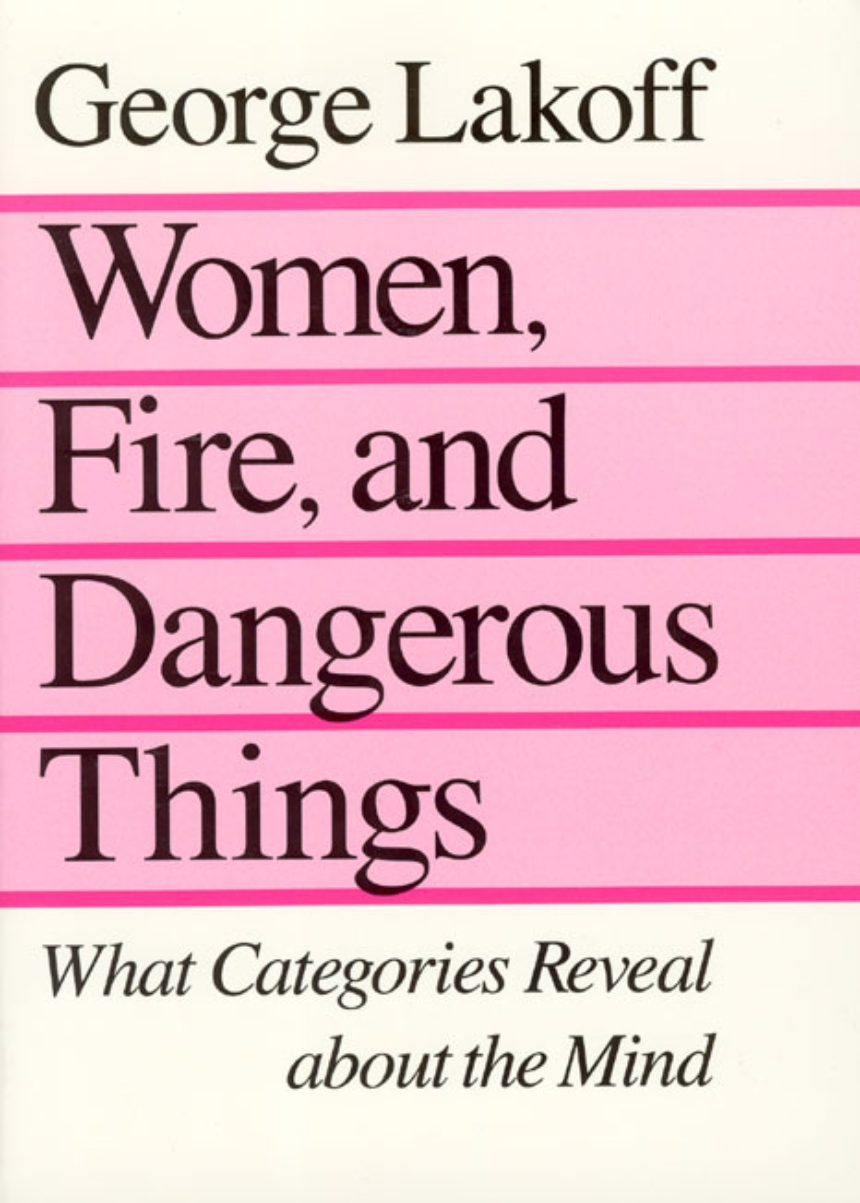Women, Fire, and Dangerous Things
What Categories Reveal about the Mind
"Its publication should be a major event for cognitive linguistics and should pose a major challenge for cognitive science. In addition, it should have repercussions in a variety of disciplines, ranging from anthropology and psychology to epistemology and the philosophy of science. . . . Lakoff asks: What do categories of language and thought reveal about the human mind? Offering both general theory and minute details, Lakoff shows that categories reveal a great deal."—David E. Leary, American Scientist
632 pages | 32 line drawings | 6-1/2 x 9-1/2 | © 1987
Cognitive Science: Language
Language and Linguistics: General Language and Linguistics, Philosophy of Language
Philosophy: Philosophy of Mind
Table of Contents
Acknowledgments
Preface
Book I: The Mind beyond the Machine
Part I: Categories and Cognitive Models
1. The Importance of Categorization
2. From Wittgenstein to Rosch
3. Prototype Effects in Language
4. Idealized Cognitive Models
5. Metonymic Models
6. Radical Categories
7. Features, Stereotypes, and Defaults
8. More about Cognitive Models
9. Defenders of the Classical View
10. Review
Part II: Philosophical Implications
11. The Objectivist Paradigm
12. What’s Wrong with Objectivist Metaphysics
13. What’s Wrong with Objectivist Cognition
14. The Formalist Enterprise
15. Putnam’s Theorem
16. A New Realism
17. Cognitive Semantics
18. Whorf and Relativism
19. The Mind-As-Machine Paradigm
20. Mathematics as a Cognitive Activity
21. Overview
Book II: Case Studies
Introduction
1. Anger
2. Over
3. There-Constructions
Afterword
References
Name Index
Subject Index
Preface
Book I: The Mind beyond the Machine
Part I: Categories and Cognitive Models
1. The Importance of Categorization
2. From Wittgenstein to Rosch
3. Prototype Effects in Language
4. Idealized Cognitive Models
5. Metonymic Models
6. Radical Categories
7. Features, Stereotypes, and Defaults
8. More about Cognitive Models
9. Defenders of the Classical View
10. Review
Part II: Philosophical Implications
11. The Objectivist Paradigm
12. What’s Wrong with Objectivist Metaphysics
13. What’s Wrong with Objectivist Cognition
14. The Formalist Enterprise
15. Putnam’s Theorem
16. A New Realism
17. Cognitive Semantics
18. Whorf and Relativism
19. The Mind-As-Machine Paradigm
20. Mathematics as a Cognitive Activity
21. Overview
Book II: Case Studies
Introduction
1. Anger
2. Over
3. There-Constructions
Afterword
References
Name Index
Subject Index
